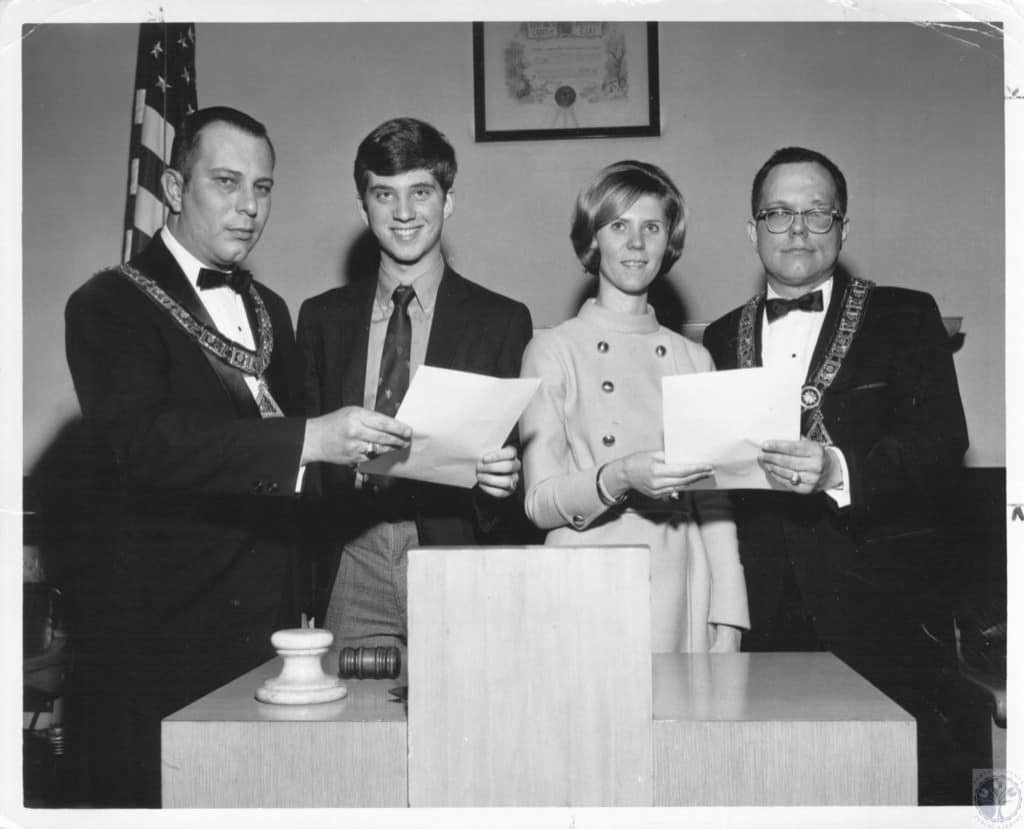Just a few weeks ago, I had an inspiring meeting with Jon Erwin, the producer-director ofWoodlawn. The subject matter of his film, premiering October 16, deals with race reconciliation. In light of recent and persistent events here in this country, his movie could not come at a better time.
The subject of race, and more importantly, our role as Christians as catalysts for change against that backdrop, runs a deep course in my life. I came to Christ through racial unrest in my town and high school in 1969 in Covington, Kentucky.
I was student body president in a baby-boom-sized public high school that had been integrated just months before. In the fall of that year, a race riot broke out one morning before classes. African-American students taunted the cheerleaders in an isolated hall and then attacked the white administrators who came running to the girls’ defense. I was working in the school bookstore in another part of the building when I heard the news. I grabbed a box cutter and dashed to that hallway with blinding murder in my heart-I was dating one of the cheerleaders at the time. By the time I got there, the incident was over and the black students had fled. I was left holding a weapon and reflecting on the out-of-control anger in my life that had been surfacing a lot. I was not a believer, but the spirit of God was beginning to convict me of my sin in those days.
As that eventful day went on, I began to reflect on some painful realities in our high school. The young men who had caused the morning’s incident were actually friends of mine from school and sports. The administrators were friends too, but I recognized from what little I knew of Jesus’ teaching that their attitudes toward African-Americans were wrong. I realized that if I had been in their place, I might well have done just what those young men did-in order to provoke needed change. I heard about a rabble-rousing school board meeting that was planned that night for white students and parents to lay out their response to the situation. I decided I would go to the meeting and share my perspective…knowing it would not be popular.
This was the first time in my life that I really prayed. In the twisted way I understood relating to God, I thought I had a right to pray since I was going to do something good. Fearful, my mother forbade me to go. I went anyway. One white person after another took the floor to vent their outrage and plan their revenge in emotional tones with the expected expletives. Then I stood up in the front row. I said that as the student body president, I wanted to offer my point of view. I said that there were racial problems in the school rooted in wrong attitudes on both sides, and that we all needed to acknowledge our part of the problem and come together with the African-American community to address this.
An unpleasant rumble filled the standing-room only crowd, and my eyes darted around at the sea of angry faces as I tried to formulate an exit strategy. And then, two rows behind me, the new Baptist pastor stood up. In Kentucky, when the Baptist pastor speaks, people listen. He said, “This young man is right and we older folks need to get behind him and let the students take the lead in solving this problem.” The next thing I knew I was leading an interracial committee of students that actually did bring about unprecedented and lasting change in that high school. I was given the key to the city. Later that year I was accepted to Harvard College, in large part because of the attention this incident brought me.
But something more important happened in my life as result of this incident. The action of that Baptist pastor-an obvious answer to my unworthy prayer-got my attention. I began to see Christians as part of the answer to life’s real problems, as heroes, as history-changers. A few months later, after hearing a clear presentation of the gospel, I went forward in that pastor’s church and gave my life to Jesus Christ. I have never looked back.
To view the trailer to “Woodlawn,”click here.
